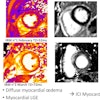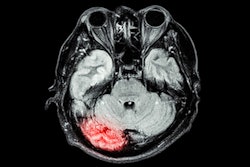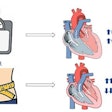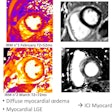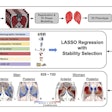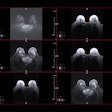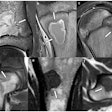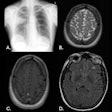Functional MRI shows that e-cigarette users perceive the product as equally rewarding as money -- a finding that highlights the addictive potential of vaping, researchers have found.
But the study results may also suggest that e-cigarettes are in fact an effective way to quit smoking tobacco, wrote a team led by doctoral candidate Nadja Grundinger of Heidelberg University in Mannheim, Germany.
"[We found that] among exclusive e-cigarette users, money and e-liquid have stronger motivational properties than tobacco cigarettes (even among former [tobacco] smokers), suggesting that e-cigarettes may be an effective tool for tobacco cessation," Grundinger and colleagues noted. The results were published on 21 November in Nicotine & Tobacco Research.
E-cigarettes have been touted as "a tool for tobacco harm reduction, as switching from tobacco cigarettes to e-cigarettes significantly reduces exposure to toxicants," the group wrote. But increased use of the product has "raised concerns that such potential benefits for smokers may be offset by adverse effects on young nonsmokers."
Grundinger and colleagues sought to better understand the "rewarding properties" of e-cigarettes and to compare their use to tobacco cigarettes via a study that explored the addictive potential of e-cigarettes and implications for smoking cessation. The study included 47 daily e-cigarette users -- 43 of whom were former tobacco smokers. Of the study participants, 32 used e-cigarettes exclusively, while 15 used both e-cigarettes and tobacco cigarettes; all underwent functional MRI. The investigators tracked each person's "anticipatory brain activation to reward-predictive stimuli for money, e-liquid, or tobacco cigarettes."
They found the following:
- Increased activation in the participants' limbic regions (i.e., the nucleus accumbens) prompted by anticipation of receiving e-liquid and money over tobacco cigarettes in exclusive e-cigarette users. The nucleus accumbens controls motivation and reward.
- Greater activation in prefrontal brain regions prompted by anticipation of money compared to e-liquid or tobacco cigarettes. These regions control decision-making, reasoning, personality, social appropriateness, executive function, and attention and focus.
- Greater activation for money compared to tobacco cigarettes in the hippocampal limbic systems of dual users. This area of the brain controls emotions and behavioral responses.
The study findings highlight the complexity of smoking cessation efforts, according to the group.
"E-cigarettes with little or no addictive potential might not be effective as a substitute for tobacco cigarettes; however, a high addictive potential would, conversely, pose a risk to non-smokers," it concluded. "Our data suggest that e-cigarettes have a sufficiently high addictive potential to make them an attractive alternative for smokers, especially if they switch completely from tobacco to e-cigarettes."
The complete report can be found here.



